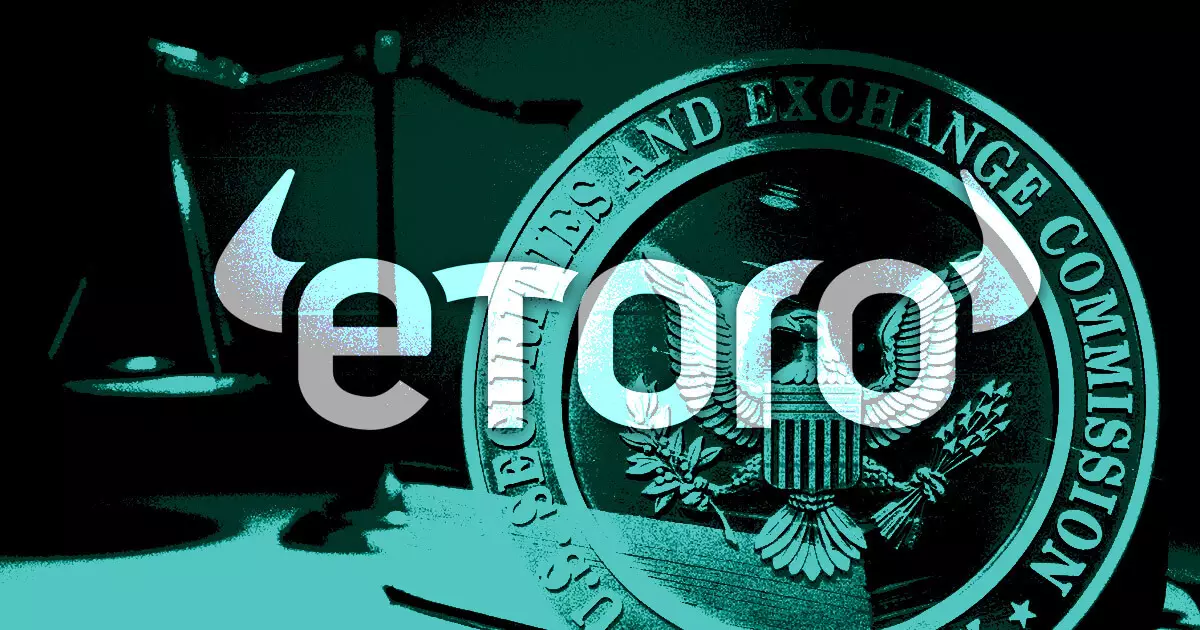In a significant move amidst ongoing regulatory scrutiny, trading platform eToro has announced the suspension of trading for most digital assets on its platform. This announcement follows a settlement of $1.5 million with the U.S. Securities and Exchange Commission (SEC), which was released on September 12. The backdrop to this settlement involves an investigation that revealed eToro had been allowing U.S. customers to trade crypto assets classified as securities since 2020, without meeting necessary federal registration obligations. Although eToro did not formally admit to the SEC’s charges, the company became obligated to limit its crypto offerings primarily to well-established currencies such as Bitcoin, Ethereum, and Bitcoin Cash.
The response from regulatory authorities highlights a growing urgency to enforce compliance in the cryptocurrency sector. Gurbir S. Grewal, the SEC’s Director of Enforcement, noted that this $1.5 million penalty indicates eToro’s readiness to cease its non-compliant practices while remaining active in the U.S. market. This regulatory resolution, characterized by Grewal, not only promises enhanced protections for investors but also serves as a precedent for other cryptocurrency platforms navigating a complex regulatory landscape. The continuing trend of scrutiny focused on platforms like Binance, Kraken, and Coinbase illustrates a broader regulatory climate where crypto firms need to align more closely with existing laws.
CEO and co-founder Yoni Assia framed the settlement as a pivotal moment for eToro, emphasizing the platform’s commitment to compliance and future growth in the regulated landscape. Assia asserted that aligning with regulatory expectations is essential, highlighting that eToro is already experiencing a clearer regulatory framework in the UK and Europe. He anticipates that a similar approach could emerge in the U.S. soon, paving the way for renewed trading of compliant digital assets. This sentiment signifies a strategic pivot, moving towards a more compliant operation, while still maintaining a vision for innovation in product offerings.
For eToro’s existing users, this shift means navigating through a period of significant changes. With a deadline set for March 11, 2025, users must either liquidate or transfer their unsupported crypto holdings to the eToro wallet. By March 18 of the same year, any unresolved crypto positions—apart from allowed tokens—will be liquidated, and proceeds transferred to cash balances. This approach gives users a window to adapt but also raises questions about the user experience and the potential disruption to trading practices.
As eToro adjusts its offerings to align with regulatory guidelines, it reflects the broader challenges crypto platforms face: maintaining operational viability while adhering to a rapidly evolving regulatory framework. The actions taken by eToro not only emphasize the importance of compliance but also underline the delicate balance between fostering innovation and fulfilling regulatory obligations in the competitive world of digital trading.


Leave a Reply